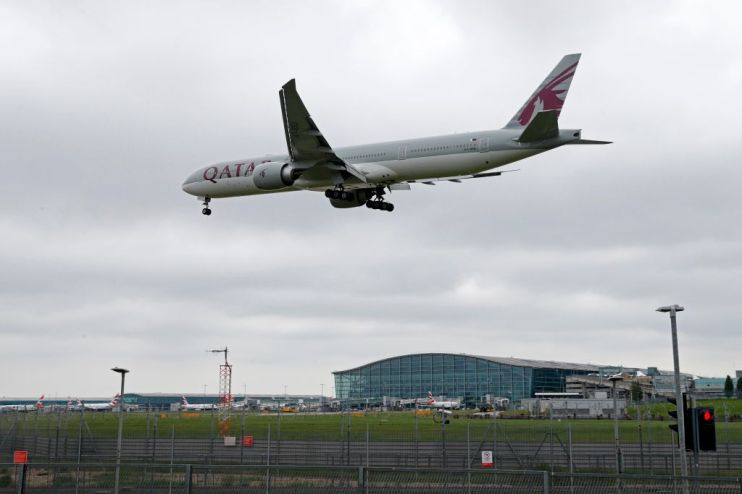The Airbus v Qatar Airways’ feud: All you need to know about the $1bn corporate divorce saga

The latest chapter in the Airbus v Qatar Airways’ saga took place earlier this month when the corporate divorce battle reached judges in the UK.
Qatar Airways and Airbus faced each other in a London court on 7 April, for the first since the airline filed a $1bn lawsuit after it was forced to ground its A350 fleet over surface damages.
After months of accusations thrown by each side, the plane maker decided to halt the carrier’s orders for 50 A321neo and two A350-100.
An unprecedented situation for the industry, the feud has been closely followed by the entire aviation sector, as it could mark a new era in the relations between manufacturers and their airline customers.
Talking to City A.M, aviation analyst Alex Macheras explained the feud could have important ramifications not only for the Toulouse based-aviation maker but for the whole industry.
Potential damages: money and reputation
Macheras said the situation has garnered increasing attention from airlines around the world, who are checking to see if the Qatari company will be awarded compensation.
“Qatar’s largest competitor, Emirates’ chief executive Tim Clark publicly warned Airbus that they fully understand Qatar’s stance in the dispute, and Emirates went as far as warning Airbus to resolve and establish a root cause with an appropriate solution before Emirates’ deliveries of A350s begin,” he said.
But according to David Warnock-Smith, aviation management professor at Buckinghamshire New University, other airlines could follow and sue Airbus only if they can prove the defect forced a halt to operations.
An additional five airlines – including Air France and Etihad – came forward about raising concerns over surface paint in the past, but they were never forced to ground their fleet.
“At the moment no other carrier has grounded their A350 aircraft so if this continues no compensation claim would be possible,” he told City A.M.
Even if Qatar Airways was not awarded compensation, Airbus could suffer a huge reputational damage after it retaliated against the lawsuit and halted the airline’s order.
The “very public” deterioration of relations between Airbus and Qatar “does not look good for the manufacturer,” as it’s unprecedented for a plane maker to cancel a customer order, especially that of someone as huge as Qatar.
“The current breakdown of relations between Airbus and Qatar is nothing short of unprecedented,” Macheras said.
“The Gulf carrier is of the utmost importance to any supplier given its purchasing power, and the high expectations of the airline are usually always met – even if it involves delays – in order to retain their business.”
Losing Qatar’s order could offer Boeing a window of opportunity to snatch the world’s largest manufacturer record, impacting not only Airbus but its whole supply chain.
“Many of Airbus’ suppliers have expressed concern over the potential of losing Qatar Airways as an Airbus customer, including smaller suppliers that are reliant on Qatar’s big orders,” explained Macheras.
A rebalancing act?
The feud, analysts told City A.M, could have a long-lasting impact on the industry, altering forever the dynamics between suppliers and customers.
Before the feud, the common dynamic was for airlines, especially the largest ones, to have “reasonable level of buyer power” against Boeing and Airbus.
The slightly subservient stance taken by manufacturers was embodied by former Airbus chief executive Fabrice Bregier, who on his last day reassured Qatar’s boss Akbar al Baker that his successor, Guillaume Faury, will continue to operate in the same way.
“I’m sure that Guillaume Faury, who is taking over the responsibility of Airbus Commercial Aircraft, will continue to work with the utmost dedication to ensure that each aircraft satisfies your requirements,” he said in February 2018.
Despite Bregier’s reassuring words, more than four years in Faury’s term as chief executive, Airbus has increasingly become more assertive when it comes to protecting its interests.
“Guillaume Faury has often shrugged off the importance of the relationship by claiming Airbus “must defend itself” in the dispute,” Macheras said, adding this was “a world away” from “the usual hoops manufacturers would jump through to keep customers happy.
“In future, we may see a slight rebalancing of supplier and buyer power as other airlines have now seen that manufacturers like Airbus are prepared if necessary to take radical action to protect their wider interests,” added Warnock-Smith.